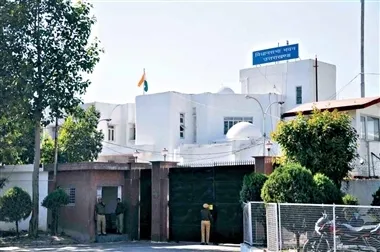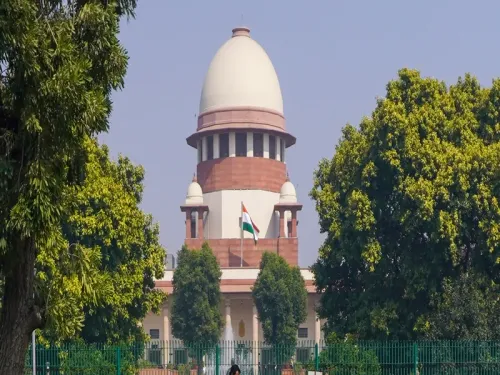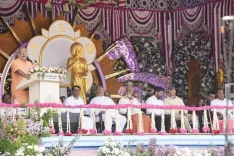Did the Uttarakhand Assembly Really Approve the Minority Educational Institutions Bill?

Synopsis
Key Takeaways
- The Minority Educational Institutions Bill expands benefits to multiple communities.
- The USMEA will oversee the recognition and standards for minority institutions.
- Existing madrasas must apply for minority status by 2026.
- The bill aims to provide equitable treatment across all minority groups.
- This legislation marks a significant step towards inclusivity in education.
Dehradun, Aug 20 (NationPress) The Uttarakhand Assembly has successfully passed the Minority Educational Institutions Bill on Wednesday, aimed at establishing regulations for all minority institutions in the state by creating a new governing body, amidst significant turmoil and protests from Opposition members.
This legislation, introduced just a day prior, spurred intense discussions between the ruling party and the Opposition, who voiced vehement objections regarding alleged electoral fraud in the recent Panchayat elections and criticized the state government for its inadequate law enforcement.
Prior to the commencement of Assembly discussions, several Congress leaders organized a sit-in protest outside the Assembly.
With the enactment of the Minority Educational Institutions Bill, the advantages of minority classification will now expand beyond Muslims to also include Sikh, Jain, Christian, Parsi, and Buddhist communities.
Until now, minority status was exclusively awarded to Muslim educational institutions.
A newly established body, the Uttarakhand State Minority Education Authority (USMEA), will take the place of the current Uttarakhand Madrassa Board, tasked with granting recognition and establishing standards for minority institutions.
This legislation sets a significant precedent in both the state and the nation, as it saw the ruling BJP and the Opposition Congress engaging in conflicts, with the latter questioning the intentions of the Pushkar Dhami administration.
The BJP responded by asserting that this legislation would ensure equitable treatment for all minority groups and accused the Opposition of obstructing the repeal of the Uttarakhand Madrasa Board Act, enacted by the Harish Rawat government in 2016, to safeguard its Muslim voter base.
Importantly, Uttarakhand is the inaugural state to enact a law implementing the Universal Civil Code (UCC) for the regulation of personal laws, encompassing aspects such as marriage, divorce, and adoption.
Similar to the UCC, the Minority Educational Institutions legislation intends to bring all community-run minority institutions under a unified regulatory authority. Previously, only institutions operated by the Muslim community were acknowledged as minority educational establishments.
By July 1, 2026, all madrasas in the state must secure affiliation from the Uttarakhand Education Board and subsequently apply for minority status with the Uttarakhand State Authority for Minority Education (USAME). Only upon satisfying the necessary criteria and conditions will the institution receive minority educational status; otherwise, unrecognized madrasas will face closure.









